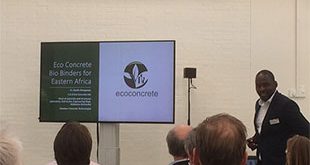
The East African Crude Oil Pipeline (EACOP) is a significant infrastructure project that strives to transport crude oil from Uganda’s oil fields in the Albertine region to the Tanzanian port of Tanga. This enterprising project is foreseen to have a transformative impact on Uganda’s economy and contribute to the development of the entire East African region. In this piece, I analyze the impact of EACOP on Uganda’s future and the broader East African community.
COMMENT | JORDAN DDUNGU | The East African Crude Oil Pipeline (EACOPwill generate considerable economic benefits for Uganda. The project is estimated to attract billions of dollars in foreign direct investment, leading to increased economic growth and diversification. The pipeline will create thousands of direct and indirect jobs, providing employment opportunities for local communities and boosting income levels. This inflow of investment and job creation will stimulate various sectors of the economy, including manufacturing, services, and infrastructure development.
Uganda’s oil reserves are estimated to be around 6.5 billion barrels, making it a potentially significant oil producer in the region. The EACOP will enable Uganda to monetize its oil resources, generating substantial revenue. The government will earn revenue through taxes, royalties, and profit-sharing agreements with oil companies. These funds can be used to finance critical development projects, such as education, healthcare, and infrastructure, improving the overall standard of living for Ugandans. Additionally, the export of crude oil through the pipeline will contribute to foreign exchange earnings, strengthening Uganda’s balance of payments and increasing its international reserves.
The EACOP project is a testament to the spirit of regional integration and cooperation within East Africa. The pipeline will enhance connectivity between Uganda and Tanzania, fostering closer economic ties and trade relations. It will also encourage an alliance between the two countries in terms of infrastructure development, technology transfer, and knowledge sharing. Furthermore, the project will attract other regional players, such as Kenya, Rwanda, and South Sudan, to explore opportunities for joint ventures and partnerships, promoting regional economic integration and stability.
The construction of the EACOP will lead to the development of supporting infrastructure, including roads, railways, and ports. This infrastructure development will not only stimulate the transportation of crude oil but also benefit other sectors of the economy. Improved transportation networks will enhance trade and connectivity within Uganda and the wider East African region. Moreover, the pipeline will contribute to energy security by providing a reliable and cost-effective source of fuel for domestic consumption, reducing dependence on imported petroleum products.
Amidst the sponsored propaganda & bias from a few activists, the EACOP project has committed to adhering to international environmental and social standards. The pipeline will be constructed using advanced technologies and best practices to minimize environmental impact and ensure the safety of local communities. Additionally, the project will invest in social programs, including education, healthcare, and skills development, to uplift the livelihoods of communities along the pipeline route. This commitment to environmental and social responsibility will contribute to sustainable development and inclusive growth in Uganda and the region.
The EACOP is a big achievement for our country since it represents a step towards energy independence. Currently, the country heavily relies on imported petroleum products to meet its energy needs.
With the EACOP, Uganda will have the capacity to export its own oil and reduce its dependence on foreign energy sources. This newfound energy independence will enhance the country’s energy security and reduce its vulnerability to global oil price fluctuations.
Uganda’s celebration of the EACOP is also fueled by the craving to emulate the success stories of other developed oil countries. Countries like Norway, Qatar, Saudi Arabia, Canada, and the United Arab Emirates have effectively managed their oil resources, transforming their economies and improving the living standards of their citizens. Ugandans hope to learn from these countries’ experiences and avoid the pitfalls associated with oil wealth, such as corruption.
In conclusion, The East African Crude Oil Pipeline (EACOP) holds immense potential for Uganda’s future and the broader East African community. Through economic growth, job creation, revenue generation, regional integration, infrastructure development, and environmental and social responsibility, the EACOP will contribute to the overall development and prosperity of Uganda and East Africa at large. As the project progresses, it is crucial for stakeholders to ensure transparency, accountability, and equitable distribution of benefits to maximize the positive impact on the region.
******
The writer is a youth and good governance activist | Contact via X (Twitter) @MrJordanposts
 The Independent Uganda: You get the Truth we Pay the Price
The Independent Uganda: You get the Truth we Pay the Price



